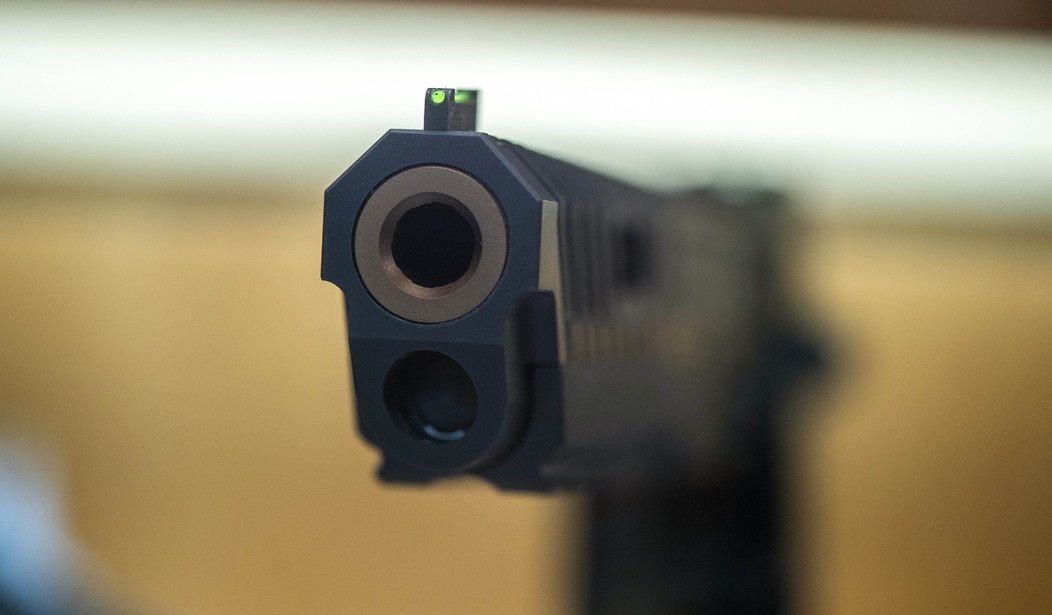Americans have been making their own firearms longer than the United States has been around, and for the vast majority of that time there’s been nothing untoward or unusual about the practice. Over the past few years, however, a number of states have adopted new laws imposing restrictions on home-built guns, and now Colorado’s statute is being called into question in federal court.
The National Association for Gun Rights, along with Rocky Mountain Gun Owners and three individual plaintiffs, have sued over the new law that bans the transport and possession of unserialized frames and receivers, arguing that the ban is similar to the ATF’s rule requiring serial numbers on unfinished frames and receivers that’s been struck down by the Fifth Circuit. Beyond that, the attorneys for the 2A groups maintain that Colorado’s new law flies in the face of the text of the Second Amendment, as well as the history and tradition of firearms regulations, which should make the prohibition null and void.
In New York State Rifle & Pistol Association, Inc. v. Bruen, 597 U.S. 1, 17 (2022), the Supreme Court set forth the test to be used for analyzing Second Amendment challenges:
In keeping with Heller, we hold that when the Second Amendment’s plain text covers an individual’s conduct, the Constitution presumptively protects that conduct. To justify its regulation, the government may not simply posit that the regulation promotes an important interest. Rather, the government must demonstrate that the regulation is consistent with this Nation’s historical tradition of firearm regulation. Only if a firearm regulation is consistent with this Nation’s historical tradition may a court conclude that the individual’s conduct falls outside the Second Amendment’s unqualified command.
… The State will not be able to rebut the presumption of unconstitutionality because the Statute is not consistent with the Nation’s history and tradition of firearms regulation.
Since the earliest colonial days, Americans have manufactured arms. American Tradition, 36. The ability to defend one’s home and community, hunt, fight wars, and ultimately win American independence depended largely on the ability to produce arms, and many Americans made their own arms rather than depend on others.
“Meanwhile, restrictions on self-made arms have been rare throughout American history.” Id. Thus, regulations on self-built arms are not longstanding. Id. “In fact, there were no restrictions on the manufacture of arms for personal use in America during the seventeenth, eighteenth, or nineteenth centuries. All such restrictions have been enacted within the last decade.” Id. at 78.
If every federal judge in the nation was faithfully adhering to the Supreme Court’s instructions in Bruen, this lawsuit would be a slam dunk for the plaintiffs. As they correctly point out, not only are restrictions on personally manufactured firearms modern creations of the gun control lobby, they’re still outliers in the 21st century. The federal government doesn’t ban the manufacturing of personally-owned firearms, and the practice is legal in 43 states as well. That alone should be enough legal ammunition to undo the law in question, though attorneys for Colorado will undoubtedly argue that since another judge in the Tenth Circuit has upheld the federal law that makes it illegal to “possess any firearm which has had the importer’s or manufacturer’s serial number removed, obliterated, or altered,” a state statute requiring all firearms to be serialized is analogous enough to pass muster.
It’s probably the most compelling argument that the state can produce, but it’s one the plaintiffs have anticipated and addressed in their initial complaint.
First, the federal statute applies only to the obliteration of serial numbers on a previously serialized firearm. In contrast, the Colorado Statute requires law-abiding citizens to affix serial numbers to any PFM in the first instance. There is a significant difference between a Statute that prevents a criminal from obliterating a pre-existing serial number, and a statute that burdens a law-abiding citizen engaged in the centuries-long American tradition of at-home gun making. Second, the federal statute applies to completed firearms, whereas the Colorado statute goes much further and requires firearm parts to be serialized. There is no Founding-era law analogous to a modern law requiring the serialization of firearm parts.
This case, like so many others around the country at the moment, is going to depend on how much leeway a judge is inclined to give the state when it comes to any historical analogues that are offered. There really is no longstanding or widespread tradition on prohibiting personally-made firearms, so in order to uphold the statute a federal judge is going to have to either declare that Colorado’s law is the result of some new and unprecedented societal challenge or that there’s a body of 18th and 19th century law that comports with the state’s newly-adopted ban. Either ruling would an extremely dubious finding, but we’ve unfortunately seen plenty of those come down since the Bruen opinion was released.








Join the conversation as a VIP Member